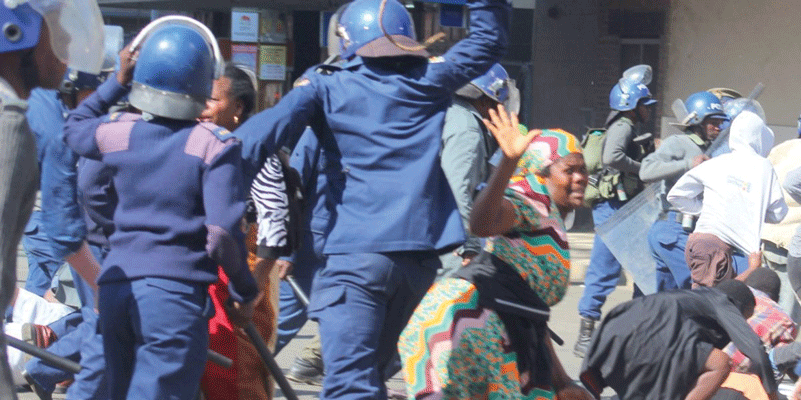
BY MIRIAM MANGWAYA
THE Zimbabwe Republic Police (ZRP) is anticipating increased political tensions and contestations ahead of the 2023 harmonised election following the continued political instability in the country since the 2018 elections.
In the ZRP Horizon 2025, a document which maps the organisation’s strategic plan for the next five years, the police asked government to avail funds for the acquisition of adequate equipment to manage public disorder and disaster situations.
Police claim that media polarisation was fuelling political activism, resulting in security forces having to devote more time and resources to managing public disorder, thereby constraining the organisation’s crime reduction efforts.
“The period 2021 to 2025 is anticipated to be punctuated by political (in)stability even though the 2018 harmonised elections left some sections of the society disgruntled,” part of the document read.
“Consequently, polarisation and tension remain evident as they continue to dominate the social and mass media. Therefore, since the planning period ahead also has harmonised elections slated for 2023, an increase in tension and political contestation is expected.”
Post-electoral violence plunged the country into chaos in August 2018, with army deployed to quell the unrest claiming six lives.
MDC Alliance supporters took to the streets to protest delays in the announcement of presidential results in an election President Emmerson Mnangagwa was eventually pronounced winner.
- Chamisa under fire over US$120K donation
- Mavhunga puts DeMbare into Chibuku quarterfinals
- Pension funds bet on Cabora Bassa oilfields
- Councils defy govt fire tender directive
Keep Reading
In 2008, the country experienced its worst electoral violence when the late former President Robert Mugabe unleashed party youths and war veterans, soldiers and the police on the opposition in a bid to overturn a first round poll defeat to the late MDC-T leader Morgan Tsvangirai.
Tsvangirai was later forced to pull out of the race “to save lives” in a wave of violence that claimed over 300 of his supporters, injuring thousands while tens of thousands were displaced.
Home Affairs minister Kazembe Kazembe said government was aware that police required adequate funding to enhance policing.
“Police officers need to have modern tools of the trade and resources at their disposal if they are to outmanoeuvre criminal propensity and sophistry,” Kazembe, whose Zanu PF party is often accused of the violence, said.
“Similarly, concerted efforts will relentlessly be made by the government to avail the requisite resources which include modern policing technology gadgets and equipment in order to operationalise this strategy.”
In the next five years, the organisation says it will also employ advanced technologies and resources to counter terrorism.
“The organisation is also alive to the fact that political extremism manifesting in the form of terrorism has now found its way into some Sadc member states. This scourge has the potential to engulf the entire region,” the ZRP said.
“To this end, enhanced information sharing, use of advanced technologies, training and resource mobilisation will go a long way in countering terrorism.”
Police Commissioner-General Godwin Matanga said the 2021-2025 strategic plan would be guided by the key objectives and national priorities of the National Development Strategy, a government blueprint policy to enhance economic growth.
But some members within the force have criticised the strategic plan, saying it was focused on advancing government policies, yet failed to address the welfare of its members.
“The plan is not considering the plight of low-ranking officers who are facing a myriad of challenges in policing.
“We need better salaries and improved working environments. We are facing critical transport challenges to conduct duties, the force is even failing to provide us with adequate uniforms, but the strategic plan does not seek to address all that,” a police officer who spoke on condition of anonymity said.
In one of its reports recently, the Zimbabwe Human Rights NGO Forum urged the police to stop using excessive force on citizens and urged government to ensure ZRP develops a code of conduct in line with the Southern African Regional Police Chiefs Co-operation Organisation guidelines.











